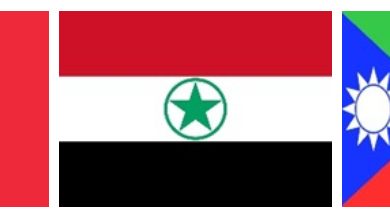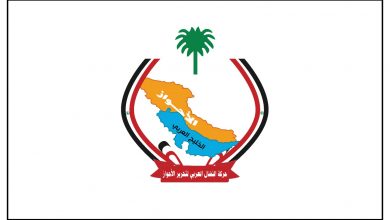The Arab Struggle Movement for the Liberation of Ahwaz Held a mass demonstration in Berlin

Ahwazna
Ahwazi freedom activists and supporters held a mass demonstration against Iranian regime executions outside the German Parliament in Berlin on Friday, with many members of the country’s Arab communities joining their call for freedom and human rights.
Protesters at the demonstration, entitled ‘No to Executions in Ahwaz’, organized by the Arab Struggle Movement for the Liberation of Ahwaz (ASMLA), carried pictures of a few of the Ahwazi activists executed by the regime in recent years, including three resistance fighters from the city of Ahwaz in Hamidiya in the west of the Ahwaz region who were recently killed by the regime.
The demonstrators, including a number of prominent German figures who attended the event to show their solidarity with the Ahwazi people’s long struggle for freedom and dignity, chanted slogans against the Iranian regime and its crimes against the Ahwazi people.
Protesters strongly condemned the Iranian regime’s crimes against the Ahwazi people, saying that these have reached the stage where they should be rightfully classified as crimes against humanity. As at previous demonstrations for Ahwaz, there was great support for the Syrian revolution among the protesters, with dozens of Syrians attending the event and declaring their support and solidarity with the struggle of the Ahwazi people in confronting Iranian occupation and fighting for freedom, dignity and human rights.
Ahwaz, the location of over 90 percent of the oil and gas resources claimed by Iran, was first occupied by the then-royalist Iranian regime in 1925, with Britain lending its support to the occupation in exchange for oil contracts. Despite the vast natural wealth in Ahwaz which stretches from the Iran-Iraq border to the south west of Iran, successive Iranian regimes have subjected the Arab people of Ahwaz to brutal apartheid-style racist discrimination and oppression, deliberately maintaining them in conditions of medieval poverty and denying them any share in the wealth from their own lands. Meanwhile, Iranians are offered generous incentives to encourage them to move to the region to work in the oil fields – jobs denied to the Ahwazi people – where they live in ethnically homogenous settlements provided with all modern amenities which, again, are off-limits to the Ahwazi people, who are also punished by the regime for publicly speaking their own Arabic mother tongue or dressing in their traditional Arab clothing.


